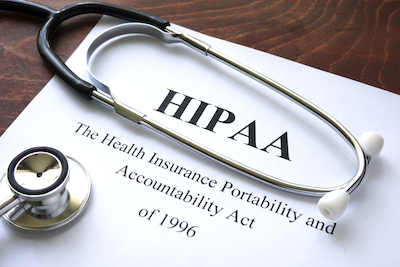 As a healthcare facility, it is crucial to ensure that your WiFi network is in compliance with the Health Insurance Portability and Accountability Act (HIPAA). HIPAA is a federal law that establishes national standards for protecting sensitive patient health information. In order to comply with HIPAA, your facility must have appropriate administrative, technical, and physical safeguards in place to protect the confidentiality, integrity, and availability of electronic protected health information (ePHI).
As a healthcare facility, it is crucial to ensure that your WiFi network is in compliance with the Health Insurance Portability and Accountability Act (HIPAA). HIPAA is a federal law that establishes national standards for protecting sensitive patient health information. In order to comply with HIPAA, your facility must have appropriate administrative, technical, and physical safeguards in place to protect the confidentiality, integrity, and availability of electronic protected health information (ePHI).
In this blog post, we will provide an overview of HIPAA and its requirements for WiFi networks, as well as steps your healthcare facility can take to ensure HIPAA compliance.
What is HIPAA?
The Health Insurance Portability and Accountability Act (HIPAA) was enacted by Congress in 1996. It is a federal law that sets national standards for protecting sensitive patient health information. HIPAA applies to all entities that handle ePHI, including healthcare providers, health plans, and healthcare clearinghouses.
Under HIPAA, entities that handle ePHI are required to implement appropriate administrative, technical, and physical safeguards to protect the confidentiality, integrity, and availability of this information. These safeguards must be in place to ensure that ePHI is not improperly accessed, used, disclosed, or destroyed.
What are the HIPAA requirements for WiFi networks?
HIPAA requires that entities that handle ePHI implement appropriate technical safeguards to protect the confidentiality, integrity, and availability of this information. For WiFi networks, this means that your facility must have a secure network in place that protects ePHI from unauthorized access, use, disclosure, or destruction.
In order to comply with HIPAA, your facility's WiFi network must meet the following requirements:
- Use encryption to protect ePHI transmitted over the network. Encryption is the process of encoding data so that it can only be accessed by authorized users. Under HIPAA, ePHI must be encrypted when it is transmitted over a wireless network to prevent unauthorized access.
- Use authentication to control access to the network. Authentication is the process of verifying the identity of a user who is attempting to access the network. Under HIPAA, your facility must have a system in place to authenticate users before allowing them to access the network and ePHI.
- Use firewalls to protect the network from unauthorized access. A firewall is a system that controls access to a network by blocking or allowing traffic based on predefined security rules. Under HIPAA, your facility must have a firewall in place to protect the network from unauthorized access and to prevent the transmission of ePHI outside the network.
- Implement access controls to prevent unauthorized access to ePHI. Access controls are security measures that are put in place to prevent unauthorized access to ePHI. These measures can include password protection, user authentication, and access logs to track who has accessed ePHI and when.
Steps to ensure HIPAA compliance with your healthcare facility's WiFi network:
To ensure that your healthcare facility's WiFi network is in compliance with HIPAA, follow these steps:
-
Conduct a risk assessment of your network. A risk assessment is an evaluation of the potential risks to ePHI on your network, including risks associated with unauthorized access, use, disclosure, or destruction of this information. The risk assessment should identify any vulnerabilities in your network and provide recommendations for addressing these vulnerabilities.
-
Implement appropriate technical safeguards. Based on the results of the risk assessment, implement the appropriate technical safeguards to protect the confidentiality, integrity, and availability of ePHI on your network. This may include encrypting ePHI transmitted over the network, implementing authentication and access controls, and using firewalls to protect the network.
-
Train your staff on HIPAA requirements and best practices. It is important that all staff members who handle ePHI are trained on HIPAA requirements and best practices for protecting this information. This training should include information on the technical safeguards in place on the network, as well as the importance of maintaining the confidentiality, integrity, and availability of ePHI.
-
Regularly monitor and review your network. To ensure ongoing HIPAA compliance, it is important to regularly monitor and review your network. This includes conducting regular risk assessments, implementing any necessary updates or changes to the network, and training staff on any changes or updates to HIPAA requirements.
Conclusion:
HIPAA is a federal law that establishes national standards for protecting sensitive patient health information. In order to comply with HIPAA, healthcare facilities must have appropriate administrative, technical, and physical safeguards in place to protect ePHI. For WiFi networks, this means implementing encryption, authentication, firewalls, and access controls to protect the confidentiality, integrity, and availability of ePHI. By following the steps outlined in this blog post, your healthcare facility can ensure HIPAA compliance with its WiFi network.


